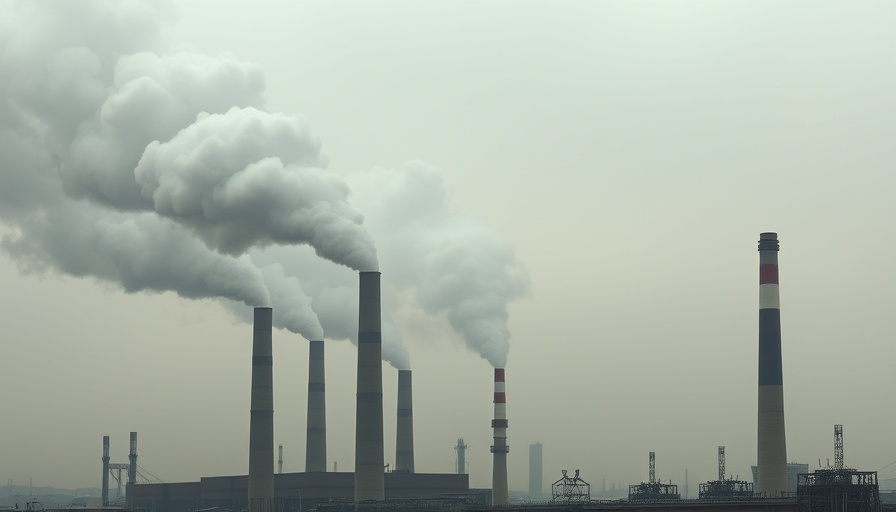
Trump Administration's Bold Move Against Clean Power Regulations
The Trump administration's recent announcement to roll back significant climate regulations signals a dramatic departure from the environmental policies established under previous administrations. The Environmental Protection Agency (EPA) has proposed changes that would loosen restrictions on greenhouse gas emissions from fossil fuel-fired power plants, aiming to reverse measures put in place by the Obama and Biden administrations.
What the New Regulations Mean for Emission Standards
These proposed rules seek to eliminate or ease limits on greenhouse gas pollution and other hazardous air emissions, citing economic benefits. EPA Administrator Lee Zeldin argues that the previous regulations were overly stringent and detrimental to the fossil fuel industry, which plays a crucial role in America’s energy independence. His claims suggest that, if enacted, these changes could save American families more than a billion dollars annually on electricity costs while ensuring a reliable energy supply.
Historical Context: The Evolution of Climate Policy
The regulatory framework surrounding greenhouse gas emissions has evolved significantly over recent years. The Obama administration’s Clean Power Plan aimed at reducing emissions from power plants was built upon by the Biden administration's updates, which enhanced protections against pollution. The rollback proposed by the Trump administration reflects a broader ideological shift towards prioritizing economic growth and energy independence over stringent environmental protections.
Potential Environmental and Health Implications
Critics of the Trump administration’s new rule argue that rolling back these regulations could have dire consequences for public health and the environment. Toxic pollutants such as mercury and arsenic, which have been linked to severe health risks, could see increased emissions if the proposed changes are finalized. This would not only impact air quality but could also exacerbate the ongoing climate crisis, contributing to adverse weather patterns and ecological challenges.
Merger of Politics and Environmental Policy
The intertwining of political agendas and environmental policies is a crucial aspect of this announcement. The Trump administration’s stance reflects a broader trend among some lawmakers prioritizing fossil fuel interests over environmental science. As debates intensify over climate change, understanding the motivations behind these policy shifts is vital for citizens working towards sustainable solutions.
The Future of Clean Energy Initiatives
The rollback raises an essential question: What does the future hold for clean energy initiatives in the U.S.? As renewable energy sources gain traction across the globe, the pushback against clean power regulations could hinder progress toward a more sustainable and environmentally friendly energy landscape. Stakeholders from various sectors must engage in discussions about the balance between economic growth and environmental responsibility.
Conclusion: A Call for Awareness
The proposed rollback of clean power regulations is not merely a political maneuver; it is a pivotal point in the ongoing battle over climate policy in America. As the details unfold, it becomes increasingly important for citizens to stay informed and critically analyze how these changes will impact their communities and the planet. Awareness and action are crucial as we navigate the complexities of energy policy and its far-reaching effects.
 Add Row
Add Row  Add
Add 




 Add Row
Add Row  Add
Add 








Write A Comment